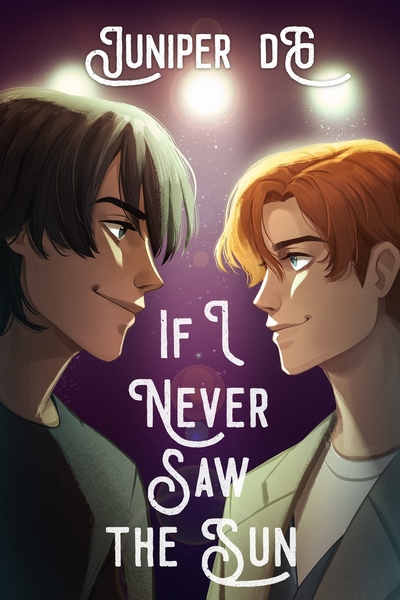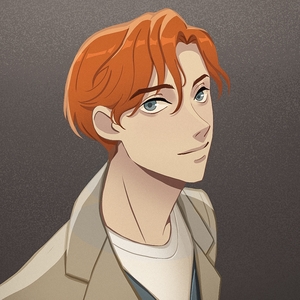CHAPTER TWO
ALL-AGES NIGHT
Bard
“But Mother, it’s all-ages night—that’s what makes it all right for me to go!”
“Not all right with me. What kind of men are going to be there, knowing there are unaccompanied girls all about?”
“Oh, la, Mum, you sound so—so—so Victorian!”
“It’s not just that, Cassandra. Something could happen—I hate every time Bard goes out to the clubs, with all the crowds, if there’s an emergency—and there’s that monster out there. Only last year, those two girls in Yorkshire—nineteen, twenty years old—murdered while they walked home.“
“Mum, you can’t live in fear like that. I’ll be in a group—we’ll have some boys walk with us.”
“Oh, and why did you fail to mention these boys and all until now?”
“Mum.”
Bard tried go straight up the stairs without getting involved in the argument, but Cassandra’s uncanny hearing picked up the sound of the door softly closing.
“Bard!” she yelled. “Bard come in here and tell Mum that it’s all right for me to go to all-ages night at New World!”
“Cassandra, your brother doesn’t decide what’s all right for you.”
Bard hedged over and peeked through the kitchen door. Cassandra was standing with her hands on her hips, still in her school uniform, while Bridget, amused, leaned over the sink to hold a rare cigarette near the open window. Poised between two of her fingers, its smoke drifted in a meandering trail through the screen, becoming part of Milton’s air.
“Mum seems to think I need a chaperone to go out. I told her I’d go with my friends, but that just isn’t—hey!” Her eyes lit up. “You could—”
“No,” Bard said. “I have better things to do tonight than hang about with a passel of teenagers.”
Cass rolled her eyes. “And what do you have to do, Grandad? Stay in with your slippers and paper? You can bring your friend Victory if you think you’ll get bored. You two can mock everyone like you always do. Mum, tell him you’ll let me go if he goes with me. Please, Bard!”
“She can go if you go with her,” Bridget said.
“Cass, I have work to do. There’s the new single from Joy—”
“Kai will be there.”
His mouth stopped mid-word and it took a second for him to form a new one. “What?”
“Kai will be there,” she repeated, keeping her face carefully guileless—and fooling Bard not one bit.
He sighed, trying not to seem too eager. “All right.”
“Oh, thank you, Bard! You’re the best!”
“Steady on.”
“And who knows, maybe you’ll get something out of it too, eh?” she said, smirking as she headed for the stairs.
He ran after her, mock-swiping at her back. She shrieked and gave him a slap on the arm, and then rumbled up the stairs.
Victory was confused when Bard told her why he was calling.
“All-ages night?” she asked. “What are you, sixteen?”
“No, but Cass is. I’ve agreed to protect her honor, heaven knows why. You can’t leave me alone with her friends, Victory. I’ll go mad and you’ll have to answer for the consequences.”
She sighed. “All right, Bard, but you’re going to owe me. You get front row next time Barkley wants to dress us down.”
“Oh, you pierce my heart.”
“Bloody dramatic whinger,” she replied. “I’ll pick you both up.”
Bard hesitated. Victory lived with her family in the greenbelt south of the city, in the Victorian mansion built by her forebear, a man much like the one Bard was named for. What was that like, to have a lineage, a history? No histories here, Bard thought—just pasts. Pasts and the plain brick terrace house, the shabby postage-stamp front garden, the rusty wrought iron fence, the cracked concrete front step, the creaking mail slot.
It began to rain again, spattering in great, plopping drops on the window.
Bard gave Victory their address.
She arrived driving a very unostentatious two-door, and Bard was out the door before she could park and come up to the house. Cass came outside, wearing a short black dress that didn’t suit her coloring and with her teased reddish-golden hair bound up in a filmy black headband, their mother’s voice quite clearly followed them.
“Be back by midnight, you hear me?”
“All right, Mum!” Cass yelled.
“And Bard, you’d better be with her when she comes back!”
Bard turned back to the house, saluted.
Bridget was standing in the doorway now, hair tucked under a nylon scarf. Bard saw the beauty under her weariness, the grace in her tired limbs—the angle of her arm as she held a hand up to wave goodbye, the slant of her body with her hip against the doorjamb. With the rain as a screen, she looked like she could be his older sister. Up close, though, he could see the worry lines on her face.
They piled into the car, Cassandra wedging herself in the backseat, Bard folding his long limbs up to sit in front.
“Ta for the ride,” Cassandra said.
Bard saw her studying Victory as the light from the streetlights cast them in half-shadow that flickered as they moved. Victory was wearing her leather jacket, with a newly-painted red stripe down the right sleeve; her blonde hair was platinum now, styled in a pompadour. Cass listened to Victory and Bard talk about music for a bit, discussing a show they’d gone to the week before. Whatever she saw or heard, Cass decided she had a kindred spirit in Victory, Bard supposed, because suddenly she cut into their conversation.
“Do you know why our dear Bardie agreed to take me out tonight, Victory?”
“To chaperone you, he said.”
Cass scooted to the edge of the back seat and leaned forward. “Obviously a pretext,” she said in a mock-whisper. “There’s going to be someone there he wants to see again.”
Bard turned in his seat to cast a warning look at his sister. “Cass—”
“Really?” interrupted Victory. She drummed her hands on the steering wheel. “Let me guess—tall, dark, leather jacket? Hangs about record shops in the middle of the day?”
Cass touched her index finger to her nose. “Did you see when Bard talked to him?”
“I did. Couldn’t pry a word out of his pretty mouth about it later, though.”
“Vic, really—”
“His name is Kai, and Bard is quite smitten already.”
“Cass,” Bard hissed through clenched teeth, “if you do not shut it, I’m going to—”
“What?” said Cass. “Not take me? But then you won’t see him. Unless you want to be seen at all-ages night by yourself.”
Bard turned his back on her once more and glared out the windscreen. The prickling on his neck was beginning again. He wasn’t even sure why he wanted to see Kai again—to what purpose? But he thought of the way Kai’s hair curled against collar of his jacket, the way he stood with one foot turned out on its side, the way he held his head, slightly forward, listening, with a kind of Joey Ramone unaffected awkwardness. The way his American accent made his mouth shape words like tricky, work, dreams. Bard had to see him again, talk to him again, that was all there was to it. But it wasn’t, was it? His own certainty made Bard uneasy. He felt out of his senses. He didn’t even know what he wanted to say to Kai, or what he wanted Kai to say. He threw his head back against the headrest and sighed.
Victory looked at him with a small smile. “That bad, eh?” she said. “I’ve got to see this Kai up close.”
“He’s dead fit,” Cass said,“ and Bard’s type, if you understand.”
Bard’s heart jumped and then fell into a strange, a syncopated rhythm, his body trying to catch up with the sudden flood of thoughts. He wondered if he was about to die. Suddenly, he was newly concerned about what he was wearing, what he looked like. He’d had his hair cut shorter since he got the internship, and wore his horn-rimmed glasses, liking the way his green eyes looked through their lenses, large and clear, as if underwater. He wore his Bowie T-shirt with an old wool blazer. What if Kai didn’t like David Bowie? Could he like someone who didn’t like David Bowie? No, that didn’t bear thinking about just now.












Comments (0)
See all